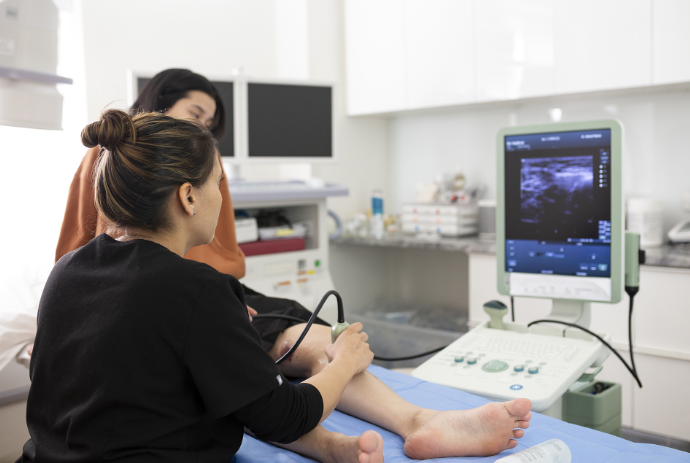What are the Common Symptoms That Might Lead Someone to A Vein Center?
What is a vein center, and what kind of doctor treats varicose veins? These questions often arise when individuals experience symptoms related to venous conditions. Vein centers are specialized medical facilities dedicated to the diagnosis and treatment of vein disorders, while vascular specialists, known as phlebologists, are the doctors who treat varicose veins. In this article, we will delve into the common symptoms that might lead someone to a vein center and explain the role of phlebologists in managing varicose veins and other venous issues.
Understanding Vein Centers
A vein center is a medical facility that specializes in the diagnosis and treatment of a wide range of venous conditions, including varicose veins, spider veins, deep vein thrombosis, and venous ulcers. These centers are staffed by trained professionals who focus exclusively on venous disorders, providing patients with specialized care and expertise. Here are the common symptoms that might prompt someone to seek care at a vein center:

- Visible Vein Abnormalities: One of the most noticeable signs is the appearance of enlarged, bulging, and twisted veins on the legs. These are often varicose veins or spider veins, which can be unsightly and may lead to discomfort.
- Leg Pain and Aching: Patients may experience persistent pain and aching in the legs, especially after long periods of standing or sitting. This discomfort can often be associated with venous insufficiency.
- Heaviness and Fatigue: A heavy, tired feeling in the legs can be an early sign of venous disorders. The legs may feel weighed down and fatigued, making it difficult to perform daily activities.
- Swelling: Swelling, particularly in the ankles and lower legs, can be a sign of venous insufficiency. It occurs as blood pools in the veins due to improper circulation.
- Skin Changes: Over time, venous disorders can lead to skin changes such as discoloration, redness, or the development of venous ulcers. These skin changes are often a sign of more advanced vein problems.
- Itching and Burning Sensation: Itchy or burning sensations around the veins are common symptoms, often associated with varicose veins and spider veins.
- Restless Legs: Restless leg syndrome (RLS) can be caused by venous disorders. Patients with RLS often experience discomfort and an irresistible urge to move their legs.
- Worsening Symptoms: Ignoring the above symptoms can lead to the progression of venous disorders, potentially causing complications. For this reason, it is essential to seek timely medical care.
What Kind of Doctor Treats Varicose Veins
A phlebologist is a medical specialist who focuses on the diagnosis and treatment of venous disorders, specifically varicose veins and other vascular conditions. These medical professionals undergo specialized training in phlebology and are well-equipped to address a wide range of vein issues. Here's what phlebologists do:

- Diagnostic Evaluation: Phlebologists conduct a thorough examination of the patient's venous system, often employing ultrasound imaging to assess the blood flow and identify any venous abnormalities.
- Treatment Planning: Based on the diagnostic evaluation, phlebologists develop personalized treatment plans tailored to the patient's specific condition and needs. Treatment options may include conservative measures, minimally invasive procedures, or surgery, depending on the severity of the venous disorder.
- Minimally Invasive Procedures: Phlebologists are skilled in performing minimally invasive treatments, such as endovenous laser ablation (EVLA), radiofrequency closure, and sclerotherapy. These procedures aim to address varicose veins and venous insufficiency with minimal pain and downtime.
- Patient Education: Phlebologists educate patients about their condition, available treatment options, and preventive measures. They empower patients to make informed decisions about their care.
- Follow-Up Care: Phlebologists provide ongoing care, monitoring the patient's progress post-treatment, and making any necessary adjustments to the treatment plan.
- Prevention: Phlebologists also emphasize preventive measures to reduce the risk of developing new venous issues or the recurrence of existing ones. This may include lifestyle modifications, exercise, and wearing compression stockings.
Conclusion:
Understanding the role of a vein center and phlebologists is essential for those experiencing symptoms of venous disorders, such as varicose veins. Recognizing common symptoms, seeking care at a vein center, and consulting a phlebologist for diagnosis and treatment are crucial steps in managing venous issues. With timely intervention and personalized care, individuals can enjoy relief from symptoms, improved venous health, and an enhanced quality of life. If you or a loved one are experiencing any of the symptoms mentioned, do not hesitate to seek expert care at a reputable vein center for a healthier, pain-free future.
Comments
Post a Comment